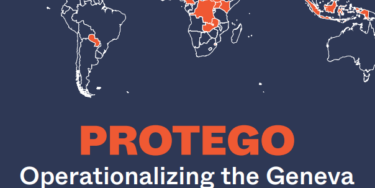
A Primer on Opus Dei in Latin America
This paper is taken from Opposition Notes: An investigative series on those who oppose women’s rights and reproductive health, by Catholics for a Free Choice
Opus Dei (Latin for “the Work of God”) is one of the most conservative orders in the Catholic church. Founded in Spain, Opus Dei is especially influential in Latin America because of the relationships it has cultivated in political and business circles. Members and sympathizers of Opus Dei hold high-level positions in various governments and it is one of the main forces supporting conservative activities in the region. It vehemently opposes the promotion and provision of a wide range of sexual and reproductive health services.
In just the last decade, people tied to Opus Dei participated in two right-wing coups d’état in Latin America — in Venezuela in 2002 and in Honduras in 2009. In addition, some of the leading personalities on the Latin American right were educated in Opus Dei schools or have ties to it either as members or sympathizers.
Opus Dei’s participation in the business world has also been significant. There, many of its members tend to display a degree of pragmatism that is not apparent in their approach to sexual and family relations, positions that have affected public policy in countries such as Mexico, Peru, Costa Rica, Colombia, Argentina and others.
However, the public face of Opus Dei has perhaps been most affected not by its activities or ideas, many of which are questionable, but rather with the publication of the novel The Da Vinci Code by Dan Brown which has sold about 100 million copies worldwide, and presents Opus Dei as an evil and even murderous semi-secretive organization.



